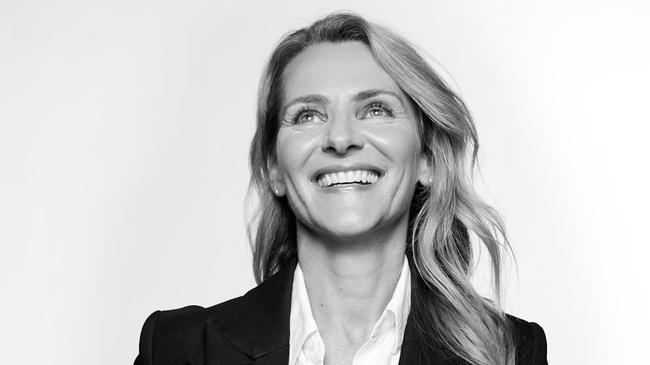Time for convergence: The advertising industry’s role in sustainable progress
Economic growth, environmental stewardship and attention-worthy creativity don’t have to be opposing forces. TBWA’s Kimberlee Wells issues a clarion call to action on sustainability.

In the face of escalating environmental crises, the advertising industry stands at a crucial crossroad. The choice is to perpetuate the traditional consumerism model, which for the longest time has disregarded environmental costs; or embrace a new paradigm where consumerism and sustainability converge.
Of course, one could argue there is no choice. Convergence is the only way to secure our future economic prosperity. This isn’t new news. In the 2006 Harvard Business Review article Strategy & Society: The Link between Competitive Advantage and Corporate Social Responsibility, Professor Michael E. Porter and Mark R. Kramer define this convergence as creating shared value.
The central premise is that the competitiveness of a company and the health of the communities around it are mutually dependent.
Advocates of this theory contend that identifying and leveraging these links between societal and economic advancement can drive the next era of global growth, potentially redefining or even saving capitalism.
Doesn’t that sound exciting? Saving capitalism! Jim Collins would be most impressed by this BHAG (Big Hairy Audacious Goal). If we as the advertising industry are to rise to this challenge, surely our role as advertisers and communicators is to take on the responsibility of redefining this sustainable consumerism narrative. For ourselves, for our partners, and for our people.
So where do we begin?
In a word – within. For the advertising industry to champion sustainable progress, it must first demonstrate a genuine commitment to embrace its own sustainable practices.
In a recent member survey conducted by the Advertising Council Australia, close to 50 per cent of respondents had audited their carbon footprint with almost all finding ways to offset their Scope 1 and Scope 2 emissions. All respondents reported an intent to become carbon neutral, with 89 per cent seeking more information on how to achieve this.
These are pleasing results. While there is more to be done, the industry is clearly motioning towards getting their own house in order.
But as with almost all industries, Scope 3 is where the most meaningful gains will be made. Scope 3 is where advertising influences consumer behaviour. Where greenwashing, and the just as harmful green hushing, conversations creep into the boardroom. And where the whole of the industry – from advertisers to agencies and supply chain partners – needs to align on clear sustainability principles.
Bill Bernbach’s famous quote “a principle isn’t a principle until it costs you something” couldn’t be more relevant. It’s a question we all must ask: at what cost will we prioritise sustainability?
Spotlighting the industry’s own Ad Net Zero initiative, a drive to decarbonise the production, distribution and publication of advertising, is proving a useful resource for advertisers keen to address their environmental footprint and stimulate such conversations.
New data published in AdGreen’s first Annual Review (2024) highlights the huge opportunity for carbon reduction in the process of ad production around the world. According to the report, which analysed 515 projects from 87 companies, the findings show that travel and transport activities across all projects accounted for the highest percentage of emissions (62.4 per cent) followed by energy and fuels (24.6 per cent) and materials (12.4 per cent).
The AdGreen calculator, in particular, is a powerful resource that can calculate and predict the potential impact of production choices on emissions, creating an opportunity for active discussions right at the start of the process.
Do you know the carbon difference between economy and business class travel; vegan and meat-based catering; upcycled props; and custom-made items? Alas, “at what cost will we prioritise sustainability?”.
Reassuringly, these are the details adland is seeking guidance on – the majority of ACA members want assistance with training, knowledge sharing, and implementation; 85 per cent of respondents are not currently using production carbon calculators; and only 32 per cent have found ways to reduce their production footprint. There is a clear opportunity here.
However, reducing carbon through more considered production decisions is likely to still result in the need to offset. While AdGreen will calculate the delta, agencies and clients will need to agree on whose Scope 3 it is, and therefore who is responsible for the cost of offsetting.
But beyond these practical considerations the industry must face, perhaps the most powerful role we can all play right now in the service of sustainability is to limit clutter and get back to truly disruptive creativity that drives real impact.
As an industry we have no shortage of ideas or ambition. When partnered with like-minded brands, creativity can and will drive significant innovation and impact. At The One Show Awards in New York last month, Minderoo received a coveted Green Pencil for their work tackling plastic pollution through a disturbing yet brilliantly clever weather forecast, predicting the amount of plastic to fall from the sky on any given day. Sharing the stage, Makro in Colombia used simple yet beautiful strategic design to develop Life Extending Stickers improving the shelf life of fruit and vegetables by six days while addressing the issue of food waste. And Koushi Chemical Industry in Japan upcycled discarded scallop shells and recycled plastic to craft an ultra-strong hard hat dubbed “Shellmet”. This new era of creativity is exciting, creating distinction and memorability. And importantly, it’s driving change.
So please, let’s all jump on our soapbox and take every opportunity to scrutinise briefs and remind the c-suite of this: economic growth, environmental stewardship and attention-worthy creativity are not opposing forces. They are complementary goals. And we have the creativity, influence and responsibility to get after them.
Kimberlee Wells is global practice lead of Sustain by TBWA and CEO of TBWA\Melbourne and Adelaide. She is also the chair of the ACA Environment and Sustainability Committee.






